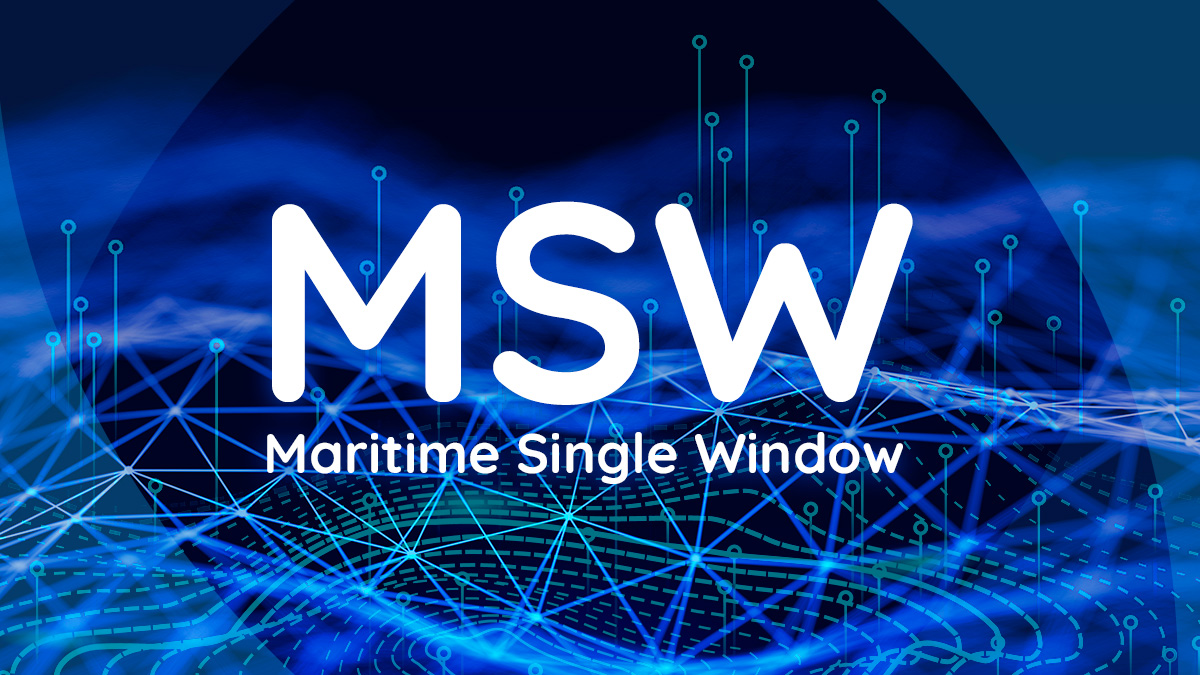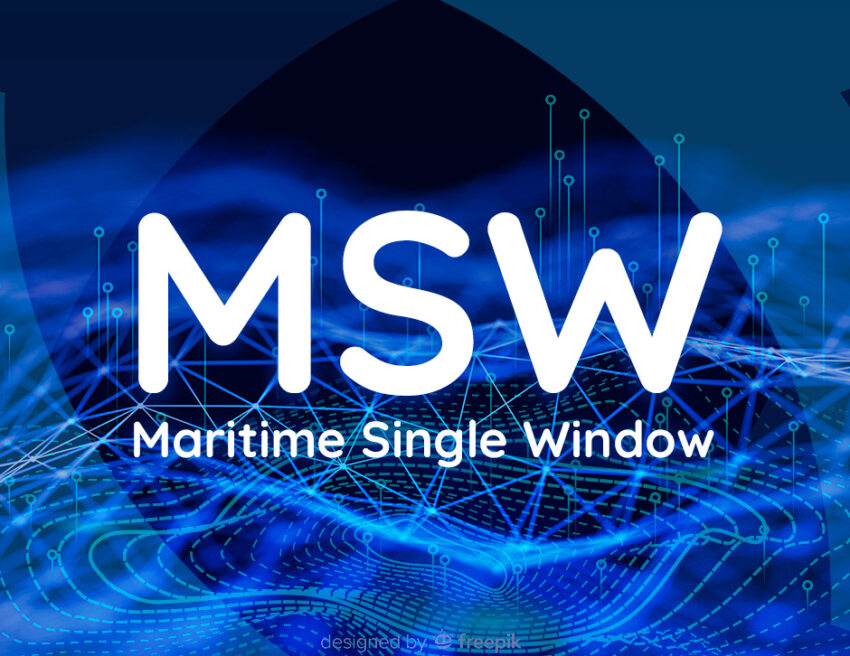As of January 1, 2024, the global implementation of a mandatory single window for data exchange in ports represents a crucial advancement in the digitization of the container shipping industry. Public authorities in all International Maritime Organization (IMO) member states are required to institute and utilize single window systems for the electronic exchange of information related to the arrival, stay, and departure of ships in ports. Furthermore, it is imperative for public authorities to foster collaboration and synchronize the electronic transmission of data, ensuring that information is submitted or provided only once and maximally reused.
Impact of Maritime Single Window on the digitization of the container shipping industry
What is Maritime Single Window?
The Maritime Single Window (MSW) serves as a collaborative platform between public and private entities, facilitating the exchange of data. Simply put, this platform plays a crucial role in orchestrating and optimizing business processes among shipping companies involved in the arrival, stay, and departure of ships at ports. To underscore the significance of digitalization in easing international maritime traffic, the International Maritime Organization (IMO) has produced an animation video. This animation elaborates on the advantages of electronic communication between ships and shore. It emphasizing the mutual benefits of embracing digital processes in the maritime sector.
How the MSW is streamlines ocean freight procedures

The IMO organized the “Maritime Single Window 2024 – A window of opportunities” symposium, held over two days on January 18-19, 2023. Coordinated by IMO, IAPH, and BIMCO, with support from the International Port Community Systems Association (IPCSA), the event gathered experts from the shipping and ports sectors. With a host of speakers from who are authorities in this sector, the event focused on topics such as the integration of Maritime Single Windows (MSWs) into national digitization strategies, the optimal design and implementation approaches to align with Member States’ trade facilitation goals, and the pursuit of environmentally sustainable shipping practices.
Additionally, during the symposium, IMO Secretary General, Mr. Kitack Lim, highlighted that the mandatory implementation of MSWs starting January 1, 2024, signifies not only a significant stride in advancing digitalization in maritime trade but also presents a valuable opportunity for all stakeholders in the shipping industry. Moreover, he emphasized that this move is not just a step forward but a necessary one for the benefit of the entire maritime community.
Fostering digitization in ocean freight operations
The MSW guarantees the seamless sharing of essential data among ships, ports, and government agencies. This digitization initiative, as emphasized by IMO Secretary-General Arsenio Dominguez, plays a crucial role in improving shipping efficiency by facilitating rapid, reliable, and smooth information transfer across the maritime landscape.
The significance of the Maritime Single Window initiative becomes apparent when we consider the fact that over 4.6 million port calls were documented globally in 2022. This signified a substantial amount of time spent by ships in ports. The International Maritime Organization has been instrumental in helping countries in the implementation of the Maritime Single Window. For example, the recent transfer of a generic MSW platform to the Port of Lobito in Angola, a collaborative effort facilitated by the Maritime and Port Authority of Singapore (MPA) and IMO. Another successful project took place in Antigua and Barbuda in 2019, demonstrating the effective support provided by the IMO in advancing digitalization within the maritime industry.
Moreover, the Facilitation Committee of the IMO has been offering support by providing updated guidelines for the establishment of these systems. Furthermore, it has focused on ensuring the security and integrity of the information exchanged through the MSW, underlining the committee’s commitment to fostering a robust and secure framework for digitalized processes in the maritime domain.
What kind of opportunities can MSW create?
The effective implementation of a Maritime Single Window (MSW) can create a range of opportunities, including:
- Reduced Vessel Time: The MSW can minimize the time vessels spend at anchor and at berth, leading to a reduction in emissions and contributing to environmental sustainability.
- More Safety: The availability of accurate and certain data through the MSW improves the safety of a port call by ensuring that relevant information is readily accessible.
- Reduced Human Interaction: By digitizing and automating processes, the MSW can contribute to a reduction in human ship-to-shore interactions, promoting better health and safety standards.
- Streamlined Clearance Process: The MSW facilitates a more efficient vessel clearance process, expediting departure procedures and reducing delays.
- Increased Predictability: Advance information provided through the MSW about vessels and cargo enhances supply chain predictability. This optimization of processes and risk management contributes to a more reliable and streamlined supply chain.
- Improved Efficiency: The MSW allows authorities and companies involved in serving the vessel to synchronize their activities in alignment with vessel arrival and departure times, leading to greater operational efficiency.
In summary, a well-implemented MSW can bring about positive changes in various aspects of maritime operations, fostering efficiency, sustainability, safety, and predictability in the container shipping industry.
Wrapping up
The shift towards digitalization in maritime information exchange goes beyond mere efficiency considerations; it encompasses accuracy, safety, and environmental protection. The IMO Compendium, a collaborative effort involving standards bodies such as ISO, UNECE, and WCO, plays a pivotal role in ensuring that diverse stakeholders can communicate effectively by adhering to harmonized data standards.
The introduction of the mandatory Maritime Single Window system heralds a new era in maritime trade, promising a future characterized by increased efficiency, transparency, and security in shipping operations. With the guidance and support provided by the IMO and its comprehensive guidelines, nations across the globe are poised to embrace this innovative digital transformation, fundamentally reshaping the dynamics of the container shipping industry.


